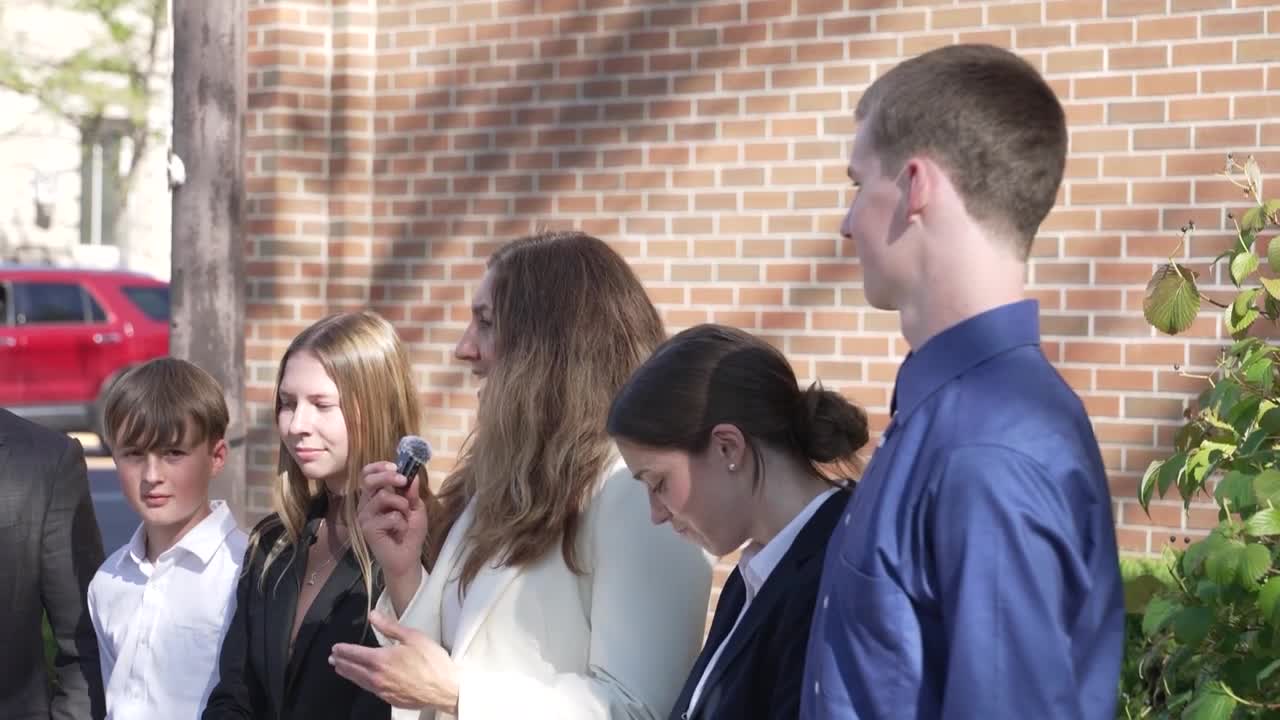HELENA — A federal judge in Missoula has dismissed a lawsuit from a group of young plaintiffs, challenging the Trump administration’s energy policies.
U.S. District Judge Dana Christensen ruled Wednesday that the 22 plaintiffs in Lighthiser v. Trump had legitimate concerns about the impacts of those policies, but that he didn’t believe the court had the jurisdiction to grant what they were asking for. It comes a month after plaintiffs laid out their case in a two-day hearing in federal court.
Plaintiffs' attorneys have already announced they plan to appeal Christensen's decision.
The plaintiffs – who range in age from 7 to 25 and live in five states, including Montana – sought to block three executive orders the Trump administration says will “unleash” American energy production. Their attorneys argue those orders are causing the plaintiffs direct harm by encouraging more fossil fuel development, leading to more greenhouse gas emissions and other pollution.
In his ruling, Christensen said the plaintiffs had demonstrated that climate change and other impacts from fossil fuels were a “children’s health emergency,” and that the administration’s policies could exacerbate that.
“Yet while this Court is certainly troubled by the very real harms presented by climate change and the Challenged EOs’ effect on carbon dioxide emissions, this concern does not automatically confer upon it the power to act,” he went on to say.
Christensen said, if he granted an injunction against the executive orders, the court would need to review every action the Trump administration took on energy, to determine whether it was implemented under the orders or some other policy.
“In other words, this Court would be required to monitor an untold number of federal agency actions to determine whether they contravene its injunction,” he said. “This is, quite simply, an unworkable request for which Plaintiffs provide no precedent.”
Christensen said he believed a ruling by the U.S. 9th Circuit Court of Appeals, dismissing another youth-led climate case in Juliana v. United States, required this outcome. He said, if the appeals court disagrees, they can return the case to him for another look – but for now, he determined it must be dismissed.
“Rather, Plaintiffs’ compelling case for redress must be made to the political branches or to the electorate,” he wrote.
Our Children's Trust, the law firm representing the plaintiffs, released a statement Wednesday, confirming they would appeal to the 9th Circuit. Julia Olson, OCT's chief legal counsel and lead attorney for the plaintiffs, said the appeals court should listen to Christensen and allow the case to be heard.
“Every day these executive orders remain in effect, these 22 young Americans suffer irreparable harm to their health, safety, and future,” she said in the statement. “The judge recognized that the government’s fossil fuel directives are injuring these youth, but said his hands were tied by precedent. We will appeal—because courts cannot offer more protection to fossil fuel companies seeking to preserve their profits than to young Americans seeking to preserve their rights. This violates not only the Constitution and Supreme Court precedent, but the most basic principles of justice.”
Montana Attorney General Austin Knudsen, who intervened in support of the federal government, released a statement praising the dismissal.
“We’re pleased the rule of law prevailed today and that the judge agreed with our conclusion that he did not have jurisdiction over this case,” he said. “Ultimately, the court rejected the plaintiffs’ request to force the Trump Administration to revert to Biden’s nonsensical and unpopular policies. Our suspicions were confirmed – this was just another show trial contrived by climate activists who wasted the taxpayer’s money.”
Of the 22 plaintiffs in this case, 15 are from Montana. Ten – including its namesake, Eva Lighthiser – were also plaintiffs in the Held v. Montana case, in which they successfully challenged Montana policies on greenhouse gases in the state court system. Because that case was state rather than federal, they were able to point to the Montana Constitution's right to a "clean and healthful environment" – a guarantee not included in the U.S. Constitution.
Read Christensen's full ruling:
Editor's Note: This story has been updated to include a statement from the plaintiff's attorneys, confirming they will appeal, and a statement from Attorney General Austin Knudsen.




